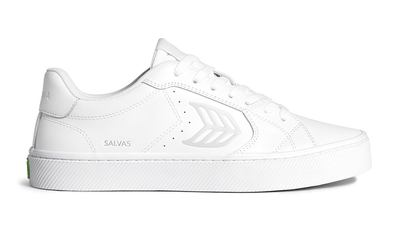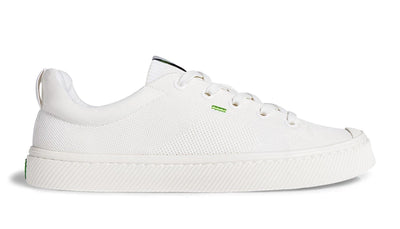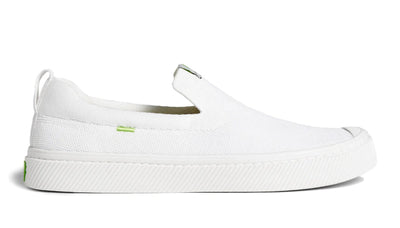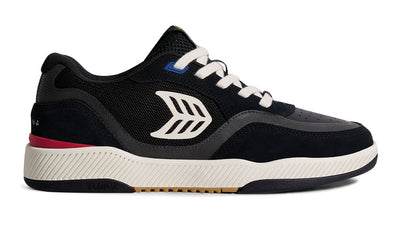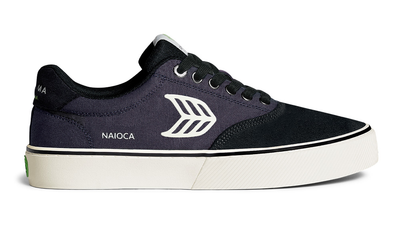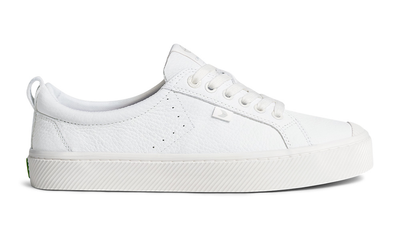Steps Towards a Greener Tomorrow: Unveiling Sneaker Footprints
The fashion industry as a whole significantly impacts our environment, and among its many facets, sneakers contribute to the carbon footprint that poses a challenge to sustainability. As conscious consumers increasingly prioritize eco-friendliness, understanding the environmental consequences of our footwear choices becomes critical. Here, we will unearth the intricate relationship between sneakers and their carbon emissions and explore how we can step towards a more sustainable future with our exceptional line of eco-friendly footwear at Cariuma.
From production to disposal, sneakers go through various phases that leave a mark on our planet. Each phase contributes to carbon emissions, which exacerbate climate change. In this article, we will delve into the specifics of these impacts, explore sustainable alternatives, and celebrate our mission to deliver high-quality sneakers that tread lightly on the Earth. Let’s take this journey together!
The Lifecycle of Sneakers: Where It All Begins
Production Phases and Their Environmental Impact
The journey of a sneaker from raw materials to finished product typically involves several key stages, each contributing to its overall carbon footprint:
-
Material Sourcing:
- Raw materials such as synthetic rubber, leather, and fabrics are extracted and processed.
- Resource extraction, like leather tanning and petroleum-derived materials, can lead to deforestation, greenhouse gas emissions, and pollution.
-
Manufacturing:
- The process involves energy-intensive steps, including cutting, stitching, and assembly.
- Transportation of materials and finished products adds further emissions, especially for brands sourcing materials globally.
-
Distribution:
- Once produced, sneakers travel from factories to retailers, consuming fossil fuels.
- The carbon output is often amplified by overpacking and inefficient inventory management.
-
Consumer Use:
- While wearing sneakers may seem innocuous, factors like washing, drying, and overall usage patterns contribute further to their life-cycle emissions.
-
End-of-Life:
- Conventional sneakers often end up in landfills, where they take decades to decompose, releasing methane along the way.
| Lifecycle Phase | Environmental Impact | Carbon Emission Sources |
|---|---|---|
| Material Sourcing | Deforestation & pollution | Resource extraction |
| Manufacturing | Energy intensive & pollution | Coal, natural gas, & oil usage |
| Distribution | Increased fossil fuel consumption | Shipping, retail transport |
| Consumer Use | Washing/drying & wear/tear emissions | Hot water, electricity usage |
| End-of-Life | Landfill methane emissions | Waste decomposition |
Understanding the above lifecycle phases helps us identify opportunities for improvement. It highlights why our commitment to sustainable practices in designing and manufacturing sneakers can make a substantial difference.
Sustainable Innovations in Sneaker Manufacturing
Fortunately, innovations within the sneaker industry are paving the way for a carbon-reduced future. Sustainable practices can effectively mitigate the detrimental impact of sneakers on our planet. Here’s how the industry is adjusting:
-
Sustainable Materials:
- Brands are increasingly using recycled materials, organic cotton, and responsibly sourced leather.
- Innovative alternatives, like algae-based foams and vegan leathers, are gaining traction.
-
Eco-Friendly Production Methods:
- Manufacturing processes are being modified to utilize renewable energy sources, reducing dependency on fossil fuels.
- Water and waste management practices are also being improved to minimize their environmental footprint.
By integrating these sustainable innovations, we can significantly reduce the carbon footprint associated with sneaker production while ensuring our stylish flair remains intact.
Walking the Talk: Our Commitment to Sustainability
A Passion for Eco-Friendly Footwear
At Cariuma, we recognize the pressing need for change in the sneaker industry. Our passion for sustainable fashion drives us to design footwear that doesn't compromise on style or comfort while minimizing our environmental footprint. Our key tenets include:
-
Transparency:
- We openly share our practices and the origins of our materials.
- We ensure our customers understand the sustainability journey our sneakers undertake.
-
Durability:
- Our sneakers are made to last, reducing the need for frequent replacements.
- Robust construction means they maintain their look and feel even after extended use.
This dual focus on transparency and durability ensures that every purchase we make together contributes to a sustainable future while fulfilling our fashion desires.
Sneaker Styles that embody Sustainability
We pride ourselves on offering a diverse range of eco-friendly sneakers that reflect our commitment to both style and sustainability. Our popular lines include:
Popular Sustainable Styles:
-
OCA Low Leather Sneakers:
- Made from responsibly sourced leather, combining modern style with enduring quality.
- Perfect for everyday wear, from casual outings to office settings.
- Explore OCA Low Leather Sneakers.
-
Salvas Leather Collection (Men's and Women's):
- Crafted for versatility and comfort, ideal for active lifestyles.
- Enhanced with recycled materials for a lighter carbon footprint.
- Discover our Salvas Leather Men and Salvas Leather Women.
-
CATIBA PRO Series (Men's and Women's):
- Designed for skateboarding with eco-conscious materials for maximum performance.
- Each step you take on your board contributes to a smaller footprint.
- Check out CATIBA PRO Low Men and CATIBA PRO Low Women.
-
Thermal Options – OCA Therma High:
- Built for colder conditions without sacrificing aesthetics, ideal for winter wear.
- Designed for durability, ensuring they withstand the test of time.
- Explore OCA Therma High Men and OCA Therma High Women.
-
Ibira Sneakers (Men's and Women's):
- A minimalistic design emphasizing comfort and eco-friendly fabric.
- Perfect for casual settings with sustainable flair.
- Discover Ibira Men and Ibira Women.
By investing in our eco-friendly sneakers, you aren’t just making a purchase. You are participating in a movement that seeks to revolutionize the fashion industry while caring for our planet.
Embracing Sustainability: A Collective Effort for a Better Future
Individual Actions Leading to Lasting Change
While corporate responsibility plays a vital role in reducing sneaker carbon footprints, individual consumer behaviors also influence significant change. Here are a few actions you can take:
-
Educate Yourself:
- Stay informed about sustainable practices in the fashion industry.
- Understand how your purchasing choices impact the environment.
-
Choose Wisely:
- Support ethical brands like ours, which prioritize sustainability at every production phase.
- Look for certifications, sustainable materials, and transparent practices.
-
Make Conscious Purchases:
- Invest in quality over quantity by selecting durable sneakers that last longer.
- Recycle or upcycle your used shoes to prevent landfill waste.
-
Share Your Knowledge:
- Encourage friends and family to make sustainable choices.
- Use social media to raise awareness about eco-friendly fashion.
Understanding that sustainability is a collective journey and requires commitment from all of us will empower each of us to stride with purpose.
The Ripple Effect of Sustainable Footwear Choices
The choices we make in our footwear directly impact environmental sustainability. Here’s how:
- Reduced Carbon Emissions: By choosing eco-friendly brands, we collectively reduce emissions associated with traditional sneaker production.
- Increased Demand for Sustainable Practices: As consumers increasingly favor ethical brands, manufacturers will be incentivized to adopt sustainable practices.
- Long-Term Economic Benefits: Investing in sustainable fashion can reduce costs associated with waste management and resource extraction in the long run.
By making a conscious effort to select sustainable sneakers, such as those offered at Cariuma, we engage in a powerful cycle of change that supports a healthier planet.
Time to Stride Onward: Our Footsteps Matter
Sustainable fashion and eco-friendly footwear choices are not just fleeting trends. They are vital components of a global movement toward environmental conservation and ethical practices. The sneaker industry holds immense potential to pivot towards sustainability, and each thoughtful purchase we make brings us one step closer to a reduced carbon footprint.
Our commitment to eco-friendly practices means that when you choose our products, you're contributing to a brighter, more sustainable future. We invite you to explore our collection of sneakers designed with both style and sustainability in mind.
Join us in marching toward a sustainable tomorrow, where every sneaker step makes a difference. Together, we can leave a lighter footprint on this beautiful Earth we call home.

